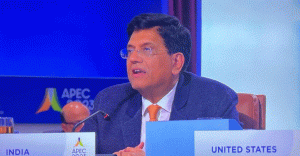
The continued growth of money supply in the country, occasioned by an increase in fiscal injections from the fiscal authority, is negatively affecting the Central Bank of Nigeria’s (CBN) efforts to rein in inflation. This was the position of members of the apex bank’s Monetary Policy Committee (MPC). Documents released by the CBN on Thursday show that virtually all the 11 members, present at the meeting, stated that while the apex bank’s monetary tightening policy was beginning to yield the desired result, fiscal measures-induced liquidity in the banking system continues to fuel inflation.
According to the CBN Governor, Olayemi Cardoso, said: “A number of developments across various sectors of the economy has resulted in elevated risks to the outlook, necessitating a significant upward revision to our shortterm inflation forecast. “Some of these developments include the upward review of energy prices, flooding across major food producing regions of the country and the pass-through effect of a weaker exchange rate on wider prices of goods and services, all of which may reverse the decelerating trend of prices in the coming months. “Our efforts to limit demand side pressures are further hampered by the increases in statutory distributions from the fiscal authority, resulting in excess liquidity in the banking system.
” Also, giving reasons for wanting a further increase in the Monetary Policy Rate (MPR), Deputy Governor for Financial System Stability at the CBN, Philip Ikeazor, said: “Domestic inflationary pressure, especially food inflation, is gradually dissipating but has not reached the desired level to warrant an easing of the current tight monetary policy stance. “Factors such as climate change, transition to optimal energy pricing, and exchange rate depreciation, though stable, continue to pose sufficient upside risks to low and stable prices. Therefore, in my view, it is too early to end the tightening cycle, given that the enduring path to the current moderation in inflation rate and stability in the naira exchange rate, is yet to crystallise.
As such, the priority remains the restoration of price stability and addressing legacy issues that hinder the effective transmission of monetary policy. “In this regard, the emphasis should be on reining in currency outside depository corporations and reducing banking system liquidity. System-wide liquidity poses an undesired risk to the easing of monetary policy, despite the sustained tight policy stance of the bank.
“At end-August 2024, growth in currency outside depository corporations between July and August almost doubled the growth recorded between June and July 2024. It increased to N3.87 trillion in August from 6.
8 per cent at endJuly to 12.7 per cent at end August 2024. These are obvious signs that the tight stance of the Bank is yet to fully permeate the economy and have a significant effect on system-wide liquidity.
” Similarly, Deputy Governor, Operations at the apex bank, Emem Usoro, stated: “It is pertinent to highlight drivers of recent price pressures, particularly the continued growth in broad money in July-2024, which portends further risks to inflation, thus, requiring an immediate policy response. “Other pressure points for price stability include, the widening fiscal deficit occasioned by fiscal stress from the revenue side, exchange rate fluctuations emanating from seasonal effects and supply constraints, and climatic factors which have exacerbated supply chain disruptions.”.














